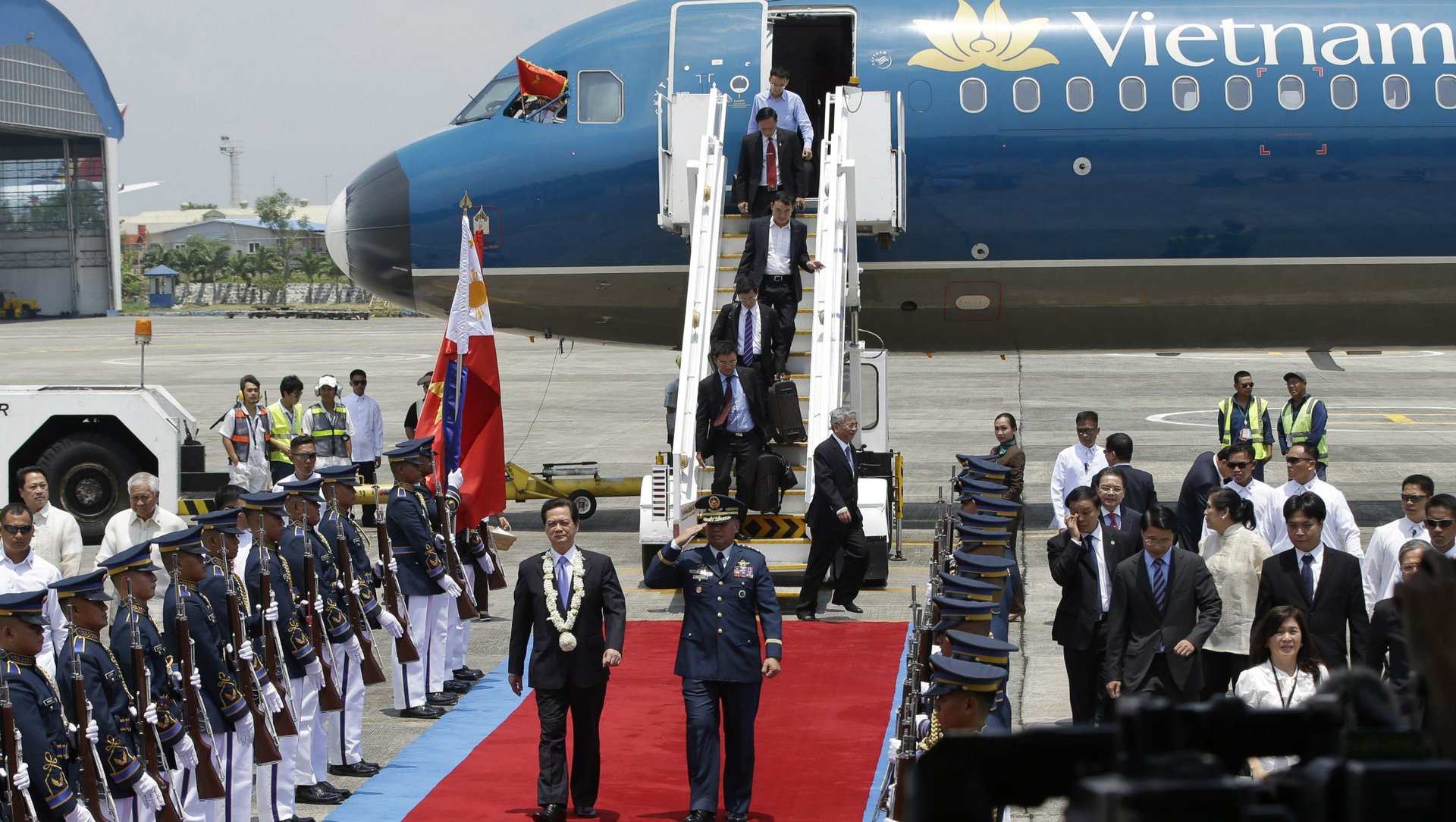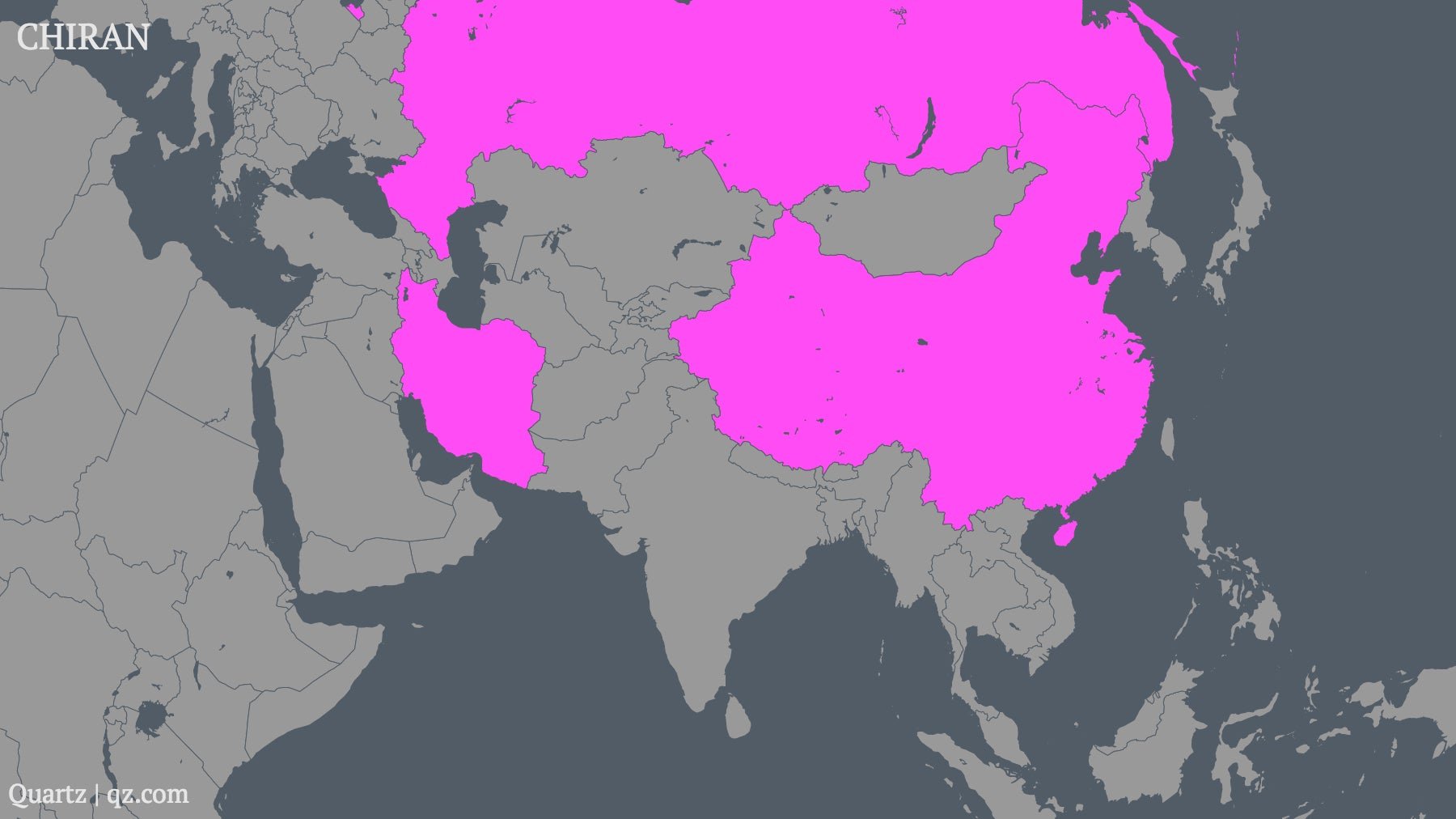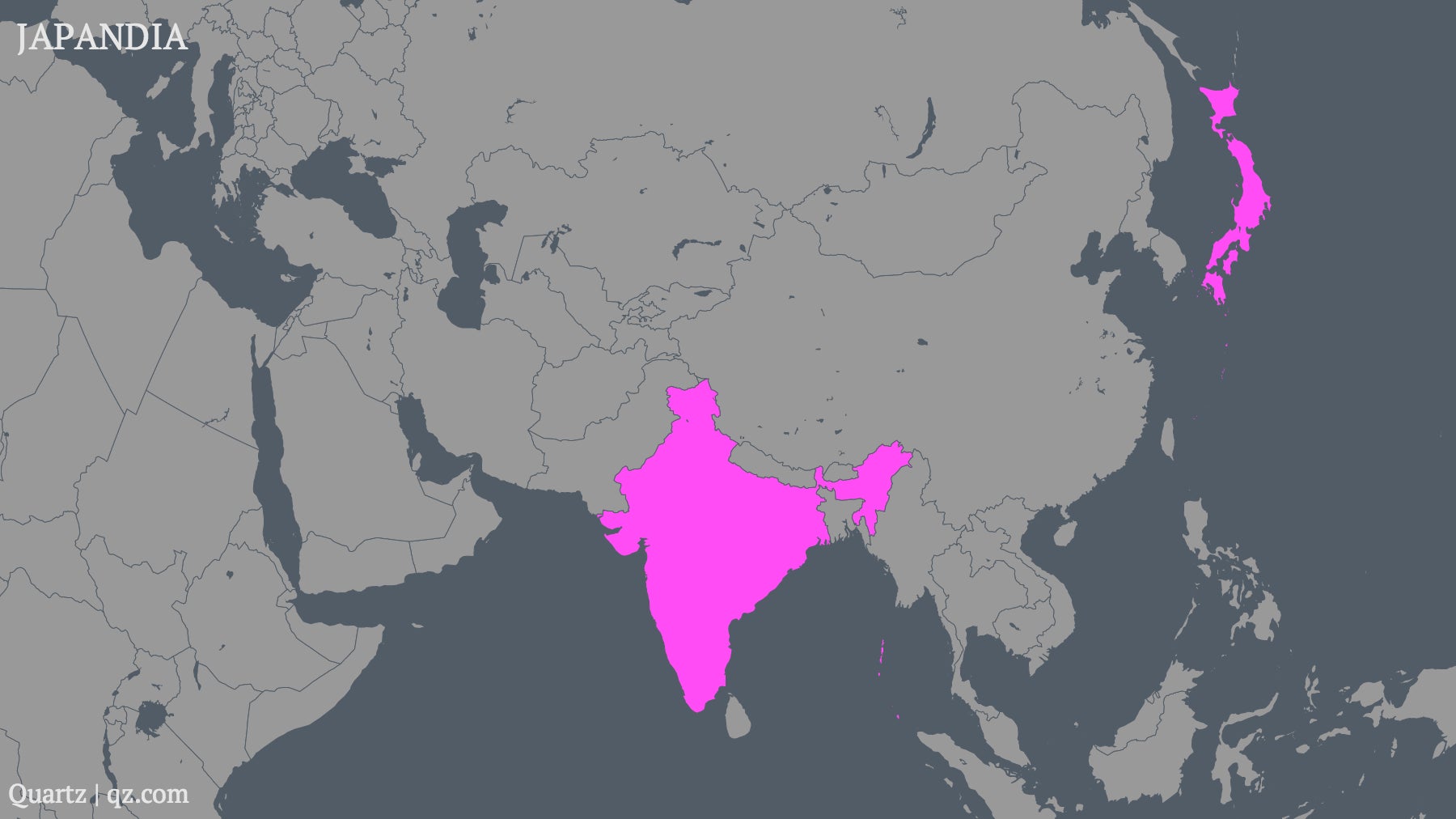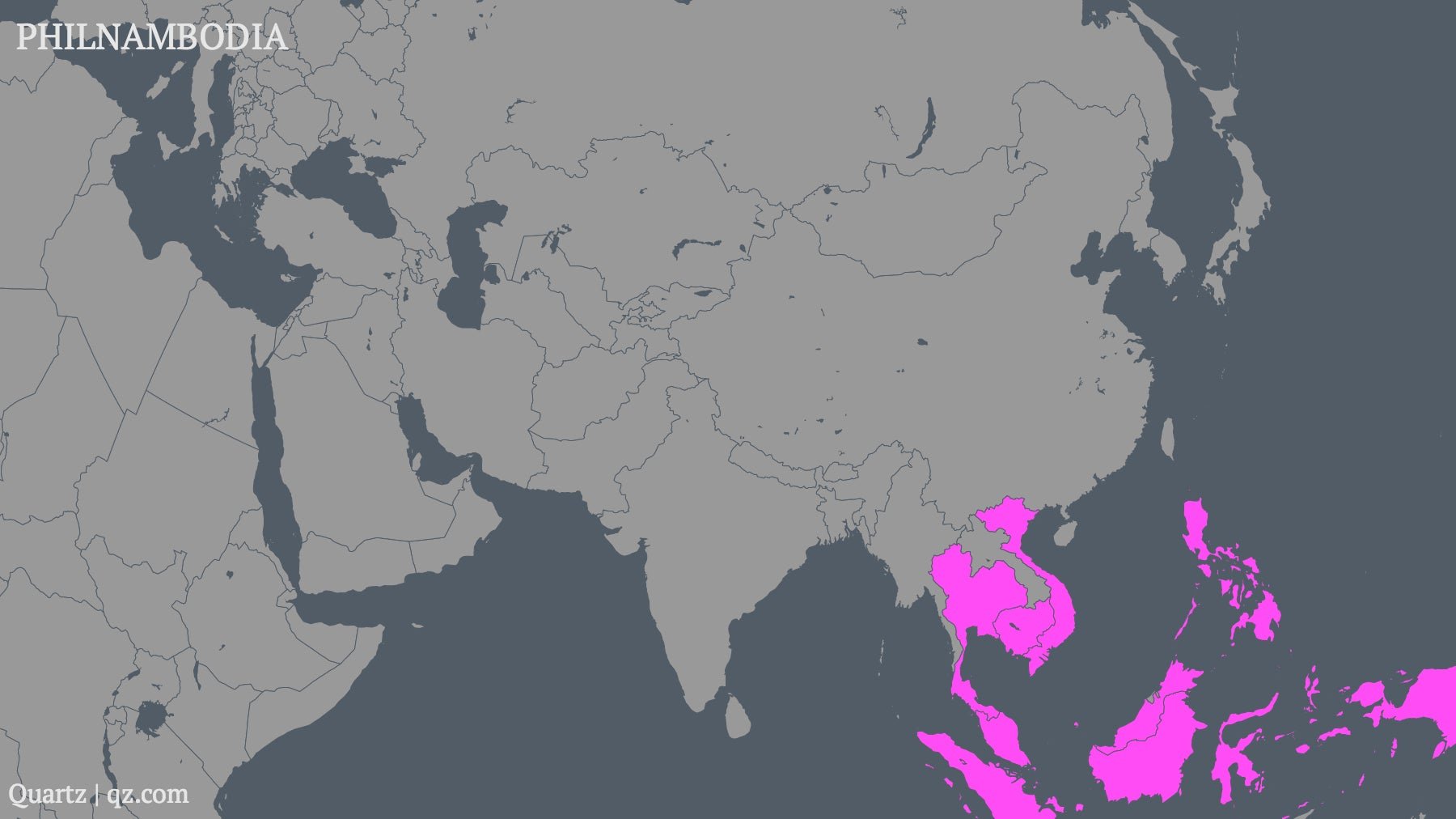Meet the new Asia order—Chiran, Japindia, and Philnambodia
Despite strong trade and investment ties, Asia’s political alliances are in a state of flux, thanks to China’s voracious demand for resources and aggressive moves in the South China Sea, Russia’s flexing of its military muscle, Japan’s rising nationalism, and America’s somewhat unconvincing foreign-policy “pivot.”


Despite strong trade and investment ties, Asia’s political alliances are in a state of flux, thanks to China’s voracious demand for resources and aggressive moves in the South China Sea, Russia’s flexing of its military muscle, Japan’s rising nationalism, and America’s somewhat unconvincing foreign-policy “pivot.”
We may be witnessing the dawn of a new era, with new partnerships forged on mutual resource needs and supplies, a reduced reliance on western economies, and the over-arching desire to balance each other out. Here’s how things appear to be shaking out so far:
CHIRAN: China, Russia, Iran (and possibly some -stans). Likes: Internet censorship. Dislikes: Activist artists.

China and Russia signed a long-awaited gas deal worth $400 billion this week, and Russia upped the number of nuclear reactors it is building for Iran, to eight, as the three nations met with a select group of Asian countries. With Europe and the US sanctioning Russia for incursions into Ukraine, the US and China battling over cyber-spying, continued sanctions against Iran, and hostility to China from Southeast Asia, the three countries, already tight, are growing tighter.
As Xi Jinping makes good on the Silk Road economic plan he outlined September 2013, “China is clearly ‘pivoting’ to the West, toward Russia and Central Asia” for resources, Michal Meidan, director of independent consultancy China Matters, told Quartz. It’s been easy—Russia and China “agree on most challenges of the modern world,” from Syria to the Middle East to Ukraine, Andrey Kokoshin, the dean of Moscow State University’s politics department, told Russian state news this week.
While Russia’s population of 143.5 million is practically a rounding error compared with China’s 1.35 billion, Russia has natural resources beyond energy, like the arable farmland that China craves. Bilateral trade between the two nations, now $90 billion, will rise to $200 billion by 2020, their leaders predict.
JAPANDIA: Japan and India. Likes: Renewed national pride, curry leaf-based sauces. Dislikes: China’s muscle-flexing, US lapdog jokes.

Asia’s “odd couple” has been holding joint military drills and signing economic agreements for years, but Narendra Modi’s election as India’s new prime minister could usher in an era of complementary nationalism. Modi’s home state of Gujarat already has close ties with Japanese business, and talks are underway about a Modi state visit to Japan, where he could ink the foreign investment deals that India desperately needs. Modi is one of only three people Japan prime minister Shinzo Abe follows on Twitter, Reuters reports, and Modi responded effusively after Abe’s congratulations over the election results.
While India’s GDP recently overtook Japan‘s on a purchasing power parity basis, the two nations couldn’t be more different on the development, education, and income scales. Their divergent needs and strengths could be complementary, as The New York Times explained, with Japan’s aging population balanced by India’s youth, and Japan’s manufacturing prowess matched with India’s undeveloped natural resources.
PHILNAMBODIA: Philippines, Vietnam, Cambodia (and potentially Indonesia, Malaysia and Thailand as well). Likes: UN maritime law. Dislikes: China’s nine-dash line.

Southeast Asia’s fast-growing economies have rarely been on the same side on political matters. But China’s increasingly aggressive territorial claims in the area are creating allegiances where they never existed before. On May 21, Vietnam prime minister Nguyen Tan Dung and Philippines president Benigno S. Aquino met to discuss the “extremely dangerous” situation China is creating by flouting United Nations maritime laws. Indonesia and others are pushing for a multilateral agreement on conduct in the sea, while China insists on brokering deals on a country-by-country basis.
While all of these new allegiances could result in political fireworks, serious economic upheaval is less likely. Asia is “geopolitically fraught, but economically integrating—this is the basic contradiction that is likely to define Asia for the coming years,” says Meidan of China Matters. “While the shifting allegiance or alliances are important from a geopolitical perspective, their market impact is limited.”